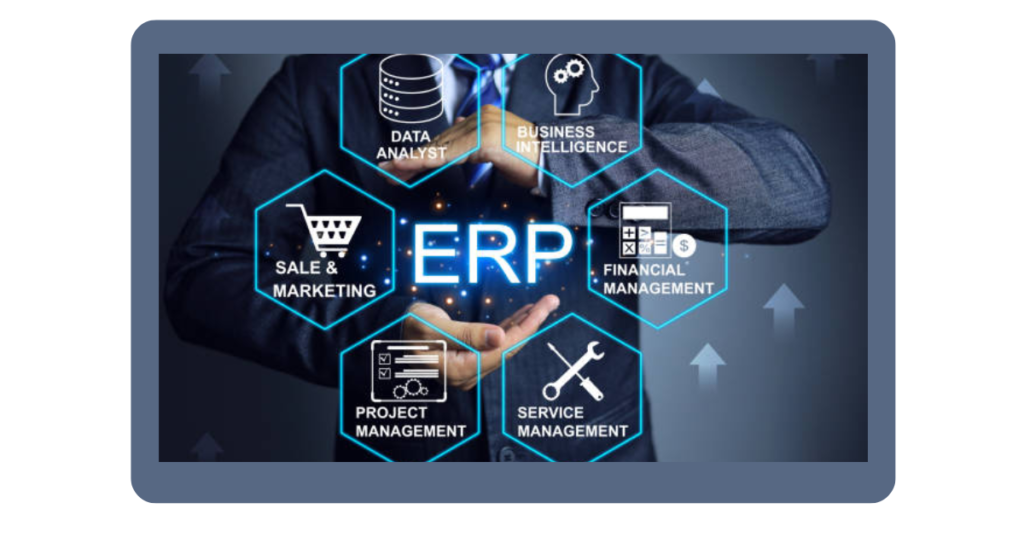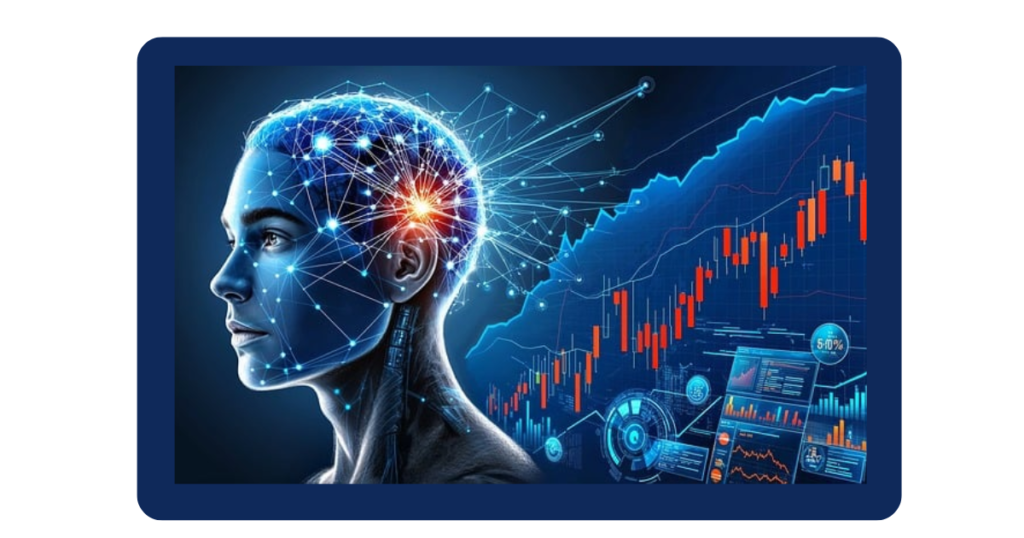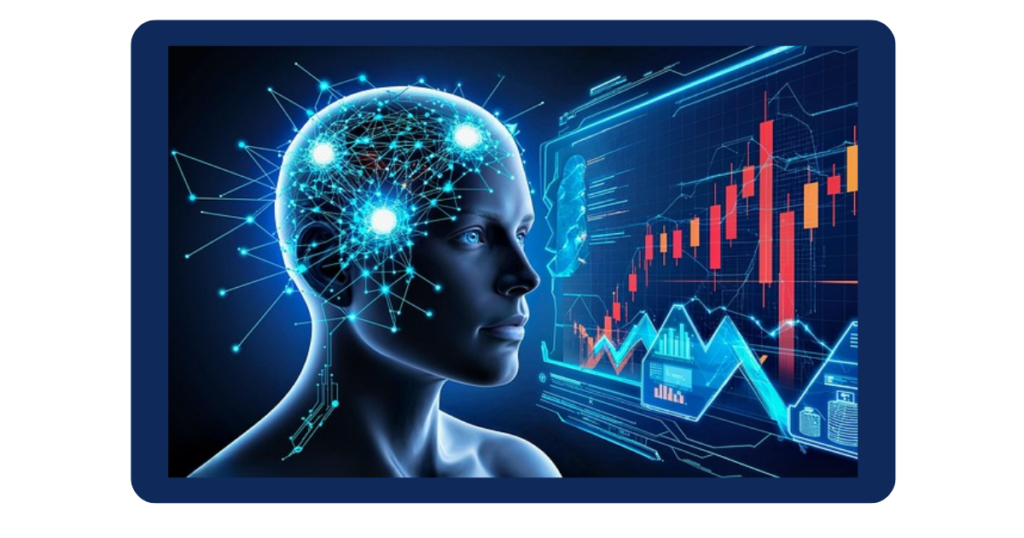In today’s fast-paced digital era, companies that don’t adapt to emerging technologies risk falling behind. One such innovation that’s reshaping enterprise landscapes is AI-driven ERP systems. As businesses seek smarter and more efficient operations, this transformative technology paves the way for a smarter future. At the forefront of this change stands Nusaker, a growing industry leader embracing the synergy of artificial intelligence with enterprise resource planning (ERP). The AI driven ERP systems future of Nusaker isn’t just a trend—it’s a strategic movement that promises efficiency, agility, and innovation at scale.
Introduction to ERP and AI Integration
What is an ERP System?
Enterprise Resource Planning (ERP) systems are the central nervous system of any modern organization. They help streamline business operations by integrating core processes such as finance, human resources, supply chain, inventory, and customer relations into a unified software platform. Traditionally, ERP systems have been rule-based and data-driven, focused on reducing redundancies and automating workflows.
However, legacy ERP systems have limitations. They often require manual data entry, rely on historical trends, and can be slow to adapt to rapid business changes. This is where AI comes in—bringing the power of machine learning, predictive analytics, and real-time insights into the picture.
The Role of AI in Modern Technology
Artificial Intelligence (AI) refers to the simulation of human intelligence processes by machines. These include learning, reasoning, problem-solving, perception, and language understanding. AI is everywhere—from your smartphone’s virtual assistant to the recommendation systems on your favorite streaming platform. When integrated with ERP systems, AI doesn’t just process data; it understands it, analyzes patterns, and offers actionable insights.
By weaving AI into ERP, businesses like Nusaker can move from reactive decision-making to proactive, intelligent planning. It’s not just about keeping up—it’s about leading the pack.

The Emergence of AI-Driven ERP Systems
How AI is Transforming Traditional ERP
The blend of AI with ERP is revolutionizing the way businesses manage operations. Instead of simply storing and processing data, AI-driven ERP systems can anticipate needs, detect anomalies, and suggest improvements—all in real time. This is the next logical step in the evolution of business systems.
Imagine an ERP that can forecast sales trends based on weather patterns, social media sentiment, and global market shifts. That’s the power of AI. It moves beyond simple dashboards to offer deep insights and smart suggestions. The AI driven ERP systems future of Nusaker relies on these capabilities to stay agile and competitive in a globalized economy.
Real-Time Data Processing and Insights
Gone are the days when businesses waited for end-of-month reports to make decisions. With AI in ERP, Nusaker now accesses real-time data across all departments. This means smarter inventory management, quicker customer service response times, and highly efficient resource allocation.
Whether identifying a sudden spike in product demand or spotting a supply chain bottleneck, AI-equipped ERP tools ensure businesses are always one step ahead. For Nusaker, this means better market responsiveness and more precise forecasting.
Nusaker’s Vision in Embracing AI-Driven ERP Systems
Nusaker’s Strategic Adoption of AI
Nusaker’s commitment to innovation isn’t just about keeping up with trends and setting the pace. The company has recognized that traditional ERP solutions no longer suffice in an era of complex, data-heavy operations. Enter AI-driven ERP systems: a technological leap that perfectly aligns with Nusaker’s growth objectives.
The organization is investing in AI not just for modernization but to unlock a new era of operational excellence. With smart algorithms and machine learning capabilities, Nusaker aims to streamline workflows, improve accuracy, and enhance customer satisfaction—all while reducing overhead costs.
Long-Term Goals with AI Integration
Nusaker envisions a future where intelligent systems support every business function. The goal is to reduce human error, automate mundane tasks, and enable employees to focus on strategic decision-making. The AI driven ERP systems future of Nusaker includes fully automated procurement systems, predictive maintenance for machinery, and AI-powered customer relationship tools.
By 2030, Nusaker plans to be a regional leader in intelligent enterprise management. Its roadmap includes scaling AI capabilities across all divisions, enhancing cybersecurity, and adopting cloud-based ERP platforms to support mobility and collaboration.

Benefits of AI Driven ERP Systems for Nusaker
Automation of Repetitive Tasks
One of the most immediate advantages of AI in ERP is automating time-consuming, repetitive tasks. Things like data entry, invoice processing, and report generation are now handled with minimal human intervention. This boosts productivity and allows employees to focus on higher-value activities.
Nusaker has already begun to see these benefits, especially in finance and supply chain operations. AI bots handle routine queries and flag inconsistencies automatically. This level of automation saves time and significantly reduces the margin of error.
Enhanced Decision-Making Capabilities
AI doesn’t just automate—it thinks. By analyzing vast volumes of structured and unstructured data, AI-driven ERP systems provide actionable insights that enhance decision-making at every level of the organization.
For example, Nusaker’s marketing team can use AI insights to tailor campaigns based on customer behavior. The finance department can forecast cash flows with higher accuracy. Supply chain managers can predict disruptions and reroute logistics accordingly. The result? Faster, smarter, and more confident decisions.
Key Features of AI-Driven ERP Systems
Predictive Analytics
One of the most powerful features of AI-driven ERP systems is predictive analytics. It’s like giving your business a crystal ball. AI can forecast trends, anticipate problems, and provide proactive solutions by analyzing historical data alongside real-time inputs. For Nusaker, predictive analytics means no more flying blind.
Instead of reacting to supply chain issues after they occur, AI helps anticipate shortages and delivery delays. The finance team can use it to predict cash flow crunches and plan accordingly. Human resources can forecast hiring needs based on project pipelines. The AI driven ERP systems future of Nusaker rests heavily on this predictive capacity to reduce guesswork and improve strategic planning.
Moreover, predictive analytics gives managers the insights needed to create performance benchmarks, anticipate market demand, and assess risk in real time. With this kind of foresight, Nusaker can stay agile, minimize losses, and capitalize on emerging opportunities well before competitors even see them coming.
Natural Language Processing
Natural Language Processing (NLP) is another AI capability transforming how ERP systems interact with users. Instead of needing complex queries and commands, users can now ask questions in plain language. For example, a manager could ask, “What were the top-performing products last quarter?” the system would provide a comprehensive answer immediately.
This kind of intuitive interaction improves system usability, especially for non-technical staff. Nusaker benefits by empowering all employees, regardless of their tech-savvy, to extract valuable insights from the ERP system. It’s a game-changer for accessibility, collaboration, and speed of execution.
Intelligent Process Automation
At the heart of AI-driven ERP systems lies intelligent process automation (IPA). This is more than automation—it’s smart automation. It doesn’t just follow rules; it learns and improves over time. IPA combines robotic process automation (RPA) with AI and machine learning to handle complex tasks across business functions.
In Nusaker’s operations, IPA is used to manage vendor relationships, optimize procurement processes, and even handle aspects of payroll and compliance. It reduces human workload, reduces errors, and ensures processes run smoothly around the clock. This is another cornerstone of the future of AI driven ERP systems in Nusaker—intelligence in every process.
Industry-Specific Applications in Nusaker
AI in Manufacturing and Supply Chain
In manufacturing, timing is everything. Delays in raw materials, bottlenecks on the production line, or inefficient inventory management can cost a business heavily. AI-driven ERP systems allow Nusaker to analyze production data in real-time, predict maintenance needs, and adjust workflows on the fly.
Nusaker’s supply chain has become a responsive, self-correcting ecosystem through AI-powered ERP. Sensors on factory equipment send data to the ERP system, which predicts wear and tear before a breakdown occurs. Orders are placed automatically when stock levels drop below a certain threshold. Delivery routes are optimized using real-time traffic and weather data.
All this means fewer delays, lower operational costs, and happier customers. The future of Nusaker AI driven ERP systems is already taking shape in their manufacturing divisions, showcasing the real-world benefits of advanced technology.
AI in HR and Customer Management
Human Resources is another area being transformed by AI. With intelligent ERP systems, Nusaker can now streamline recruitment by using AI to scan resumes, shortlist candidates, and even conduct preliminary assessments. This saves time and ensures the best talent is quickly identified.
On the customer side, AI-driven ERP systems enhance relationship management by analyzing client interactions, tracking satisfaction levels, and suggesting personalized engagement strategies. CRM modules now offer smarter insights—who’s likely to churn, what upsell opportunities exist, and which customers need follow-up.
For Nusaker, these improvements mean stronger employee engagement and higher customer satisfaction—key pillars in building a future-ready enterprise.

Challenges in Implementing AI-Driven ERP Systems
High Initial Investment
Let’s be honest—integrating AI into ERP systems isn’t cheap. The upfront costs can be steep, from purchasing the software to upgrading infrastructure and training staff. For organizations like Nusaker, this was a major hurdle to clear.
But here’s the thing: while the investment is significant, the long-term ROI is even greater. Reduced operational costs, increased productivity, better forecasting, and fewer human errors lead to substantial savings. Nusaker understands that the AI driven ERP systems future of Nusaker is an investment in sustainability, scalability, and success.
Moreover, AI integration costs are steadily declining as technologies become more accessible and cloud-based models allow for pay-as-you-go solutions. While the initial sticker shock may be high, the payoff makes it well worth the plunge.
Data Privacy and Security Concerns
With great power comes great responsibility—especially when it comes to data. AI systems thrive on data, but the more data you feed, the more you must protect. For Nusaker, ensuring that customer and internal data are secure has been a top priority.
Cybersecurity threats are evolving as fast as the technology itself. If not properly secured, AI-driven ERP systems could be vulnerable to breaches, leaks, or misuse. Nusaker has tackled this by implementing strict data governance protocols, multi-factor authentication, and real-time monitoring systems.
It’s a delicate balance: empowering your business with intelligent systems while maintaining ironclad control over the data they use. Yet, as part of the AI driven ERP systems future of Nusaker, robust security is not just a feature—it’s a foundation.
Solutions to Overcome Implementation Barriers
Scalable Deployment Models
To mitigate financial risk and ease the transition, Nusaker adopted a phased, scalable deployment model for AI integration. Rather than overhauling their entire ERP system overnight, they rolled out AI features department by department, testing and refining as they went.
This approach allowed for gradual adaptation, minimized disruption, and provided proof of concept early in the process. Today, their deployment model is a blueprint for other mid-sized enterprises aiming to embrace AI without drowning in complexity.
Scalable models also mean flexibility—companies can start small, see what works, and scale as needed. This strategy supports the AI driven ERP systems future of Nusaker, making innovation a manageable and strategic journey rather than a chaotic leap.
Employee Training and Change Management
You can’t just install AI and expect miracles. People still run businesses, and if they don’t understand or trust the tools, those tools won’t deliver. That’s why Nusaker invested heavily in employee training and change management programs.
They created a culture of continuous learning, encouraging staff to embrace AI tools and empowering them to use ERP insights to drive performance. Interactive workshops, user-friendly guides, and real-time support ensured smooth adoption across teams.
Change is always hard, but it becomes an opportunity with the right mindset and resources. For Nusaker, training has been key in aligning people with their AI vision and ensuring that the AI driven ERP systems future of Nusaker includes empowered, informed, and enthusiastic users.

The Competitive Edge for Nusaker with AI-Driven ERP
In a market where every company strives to do more with less, gaining a competitive edge isn’t just about having a great product or service anymore—it’s about operating smarter. That’s exactly where AI-driven ERP systems come into play for Nusaker.
Nusaker can make faster, more accurate business decisions by embedding AI into its ERP infrastructure. Every key area, from demand forecasting to customer relationship management, is now backed by data-driven intelligence. The system can identify inefficiencies humans might overlook, optimize procurement schedules, and highlight emerging market opportunities.
Imagine this: while competitors are still reviewing weekly performance reports, Nusaker’s AI-driven ERP has already adapted its production planning in real time based on live data. That’s not just smart—it’s a massive strategic advantage.
Moreover, with predictive maintenance and AI-backed quality control, Nusaker minimizes downtime and product defects. The AI driven ERP systems future of Nusaker ensures that they don’t just keep up—they stay ahead. It’s the difference between playing catch-up and being a trendsetter.
Role of the Cloud in Enhancing ERP AI Capabilities
The cloud has been a game-changer for businesses of all sizes—and when it comes to AI-driven ERP systems, it’s an essential enabler. Cloud-based ERP platforms provide the flexibility, scalability, and accessibility needed for AI to thrive.
For Nusaker, moving to a cloud-based ERP environment meant they could deploy AI modules quickly, update them seamlessly, and give employees access to tools from anywhere in the world. They would no longer be tethered to a server room or face delays due to infrastructure upgrades.
Cloud platforms also allow for massive data storage and real-time processing, key ingredients for effective AI operations. This means faster insights, smoother workflows, and greater agility overall.
Perhaps the biggest advantage? Cost-efficiency. With the cloud, Nusaker can avoid huge upfront investments in hardware and infrastructure. They pay for what they use and scale as they grow. This model perfectly complements the AI driven ERP systems future of Nusaker, making innovation accessible and sustainable.
Security-wise, leading cloud providers offer enterprise-grade protection, ensuring that data is not only accessible but also safe. Add in automatic backups, redundancy systems, and 24/7 support, and it’s easy to see why Nusaker fully embraced the cloud-AI synergy.
Global Trends vs. Nusaker’s Local Adaptation
Globally, AI-driven ERP systems are becoming the gold standard. Businesses from Silicon Valley to Singapore are reimagining operations with AI at the core. But how do these global trends translate to Nusaker’s unique business landscape?
Here’s where Nusaker shines—they don’t just copy trends; they adapt them. While global giants may push certain AI capabilities, Nusaker tailors them to local challenges and customer expectations. For instance, while predictive maintenance is a global trend, Nusaker adapted it to suit regional manufacturing environments, supply chain behaviors, and workforce capabilities.
The AI driven ERP systems future of Nusaker lies in this smart localization. They’re not just chasing trends but shaping them for their context. Whether it’s regulatory requirements, cultural preferences, or market dynamics, Nusaker ensures that AI enhances rather than disrupts.
Another key area of local adaptation is language. Nusaker’s AI-driven ERP integrates multi-language NLP features, ensuring that team members across different regions can interact with the system in their native tongues—breaking barriers and boosting collaboration.
By marrying global innovation with local insight, Nusaker has created an incredibly effective hybrid model and uniquely theirs.
Case Studies: Successful AI ERP Integration
Real-world results speak louder than roadmaps and strategies. Nusaker has several success stories that highlight the impact of AI-driven ERP systems.
Case Study 1: Inventory Optimization
In their electronics manufacturing division, inventory levels were a persistent problem. Overstocking tied up capital; understocking led to missed sales. With AI-driven ERP, the system analyzed historical sales, supplier lead times, and seasonal demand to maintain optimal stock levels. The result? A 22% reduction in inventory holding costs and a 15% increase in order fulfillment rate.
Case Study 2: HR Efficiency Boost
Recruitment was another area in need of a revamp. AI was introduced into the ERP’s HR module to scan resumes, match qualifications, and even conduct automated first-round interviews. Hiring cycles were cut in half, and employee satisfaction rose due to better candidate-role fit.
Case Study 3: Financial Forecasting
The finance department used to spend days compiling reports. Now, AI generates real-time insights, spots irregular spending patterns, and forecasts revenue with over 95% accuracy. This has drastically improved decision-making and planning.
These success stories prove that the AI driven ERP systems future of Nusaker isn’t theoretical—it’s happening now. The impact is measurable, scalable, and replicable across departments.
Conclusion: Embracing the Intelligent Future
We’re standing at the threshold of a new business era—where intelligence isn’t just human; it’s embedded in the systems we use daily. For Nusaker, the journey toward integrating AI-driven ERP systems has been transformative.
The benefits have been wide-ranging and profound, from improving productivity and reducing costs to enhancing customer and employee experiences. But perhaps more importantly, Nusaker is no longer reacting to change—it’s leading it.
The AI driven ERP systems future of Nusaker represents a bold, visionary step into an intelligent, data-driven world. It’s about being proactive, adaptable, and future-ready. With AI as a core component of their ERP infrastructure, Nusaker isn’t just managing resources—it’s unlocking their full potential.
The future is filled with possibilities, and Nusaker is poised to seize every opportunity. In doing so, they’re not only securing their competitive edge—they’re defining the future of enterprise in their region and beyond.
FAQs
1. What is the role of AI in ERP systems?
AI enhances ERP systems by enabling intelligent data analysis, automation, predictive forecasting, and natural language interactions—resulting in smarter and more efficient operations.
2. Why did Nusaker choose to implement AI-driven ERP systems?
Nusaker saw AI as a strategic asset for increasing efficiency, improving decision-making, and staying competitive in a rapidly evolving digital landscape.
3. How is cloud technology supporting Nusaker’s AI-ERP transition?
Cloud platforms allow for faster deployment, scalability, cost efficiency, and secure real-time access—making AI integration seamless and more effective for Nusaker.
4. What are the biggest challenges in adopting AI ERP systems?
High initial costs and data security concerns are major barriers, but these can be overcome with the right strategies—like scalable deployment and robust cybersecurity.
5. Is the investment in AI-driven ERP systems worth it?
Absolutely. The long-term benefits—like reduced costs, better forecasting, and improved agility—far outweigh the initial investment, especially for forward-thinking companies like Nusaker.

